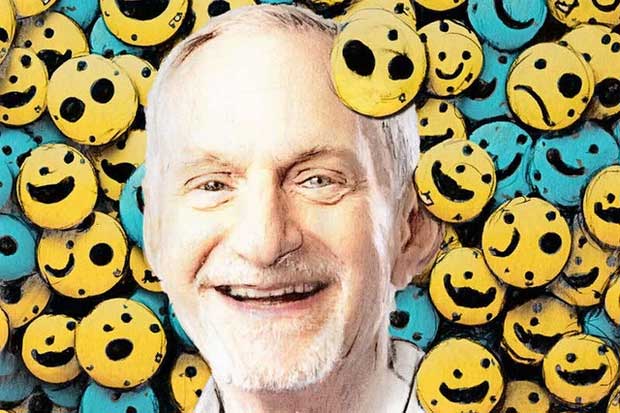80-Year Happiness Study: One Simple Factor Is All It Takes to Be Happy
Happiness is always something that people seek and search for in their lives, even though the definition of happiness is still a complicated question. To feel happy, what do we need most? The answer may depend on each individual, but scientists have found the most common "formula" of happiness, based on the majority.
Research to find the answer to happiness
The study by Robert Waldinger, professor of psychiatry at Harvard Medical School and director of the Center for Psychodynamic Research and Therapy at Massachusetts General Hospital, and his colleagues is the longest-running study of happiness ever conducted and is still ongoing today. It began in 1938, with 724 participants, including 268 Harvard undergraduates and 456 14-year-old boys growing up in some of the toughest neighborhoods in Boston, Massachusetts.

Professor Robert Waldinger has spent his life studying happiness.
These two groups of people were judged by society to have quite different material conditions, living circumstances and perceptions, and at that time, people would predict that the Harvard group of students would certainly be happier, even though the concept of what 'happiness' is still fiercely debated.
All were interviewed and given regular medical checkups when they entered the study. Throughout their lives, participants had regular brain scans and blood tests, and most importantly, were given numerous interviews about their mental health.
More than eight decades later, the happiness study has expanded to three generations. Harvard researchers continue each other's work, and volunteers include more than 1,300 direct descendants of the original participants. Waldinger, who is now leading the massive project, says that while the study is still ongoing, after collecting data for 80 years, they have been able to piece together some of the 'secrets of happiness'.
According to psychologists, happiness can be classified into two types : hedonic happiness - an experience that fluctuates from moment to moment and usually does not last long. The remaining type is stable happiness - meaning feeling satisfied with your life, with few negative moods in daily life.

Research reveals what makes most people happy and satisfied in their lives
The most important factor that creates happiness
One of the most surprising findings of the study was that the factor that many people said made them happiest was not money, but happiness from relationships. How happy we are in our relationships has a powerful effect on our health.
'Our research has shown that the happiest people are those who are engaged in relationships, in family, in friends, in community,' Waldinger said in 2015.
That is why the people who conducted this remarkable research have given advice and spread messages encouraging people to build healthy relationships in their lives.
The first lesson you can learn, says Waldinger, is: 'Social relationships are actually good for us and loneliness kills us.'

Good relationships with others bring happiness to people, not money or success.
' People who have better social connections with family, friends, and communities are happier, physically healthier, and live longer than those who are less connected. Conversely, experiencing loneliness is toxic. Such people have poorer physical health, brain function, and a shorter life expectancy in middle age,' he says. 'However, it is also important to note that having good relationships with others is not easy. It is not the quantity of relationships that is good, but the quality of the connection. People can feel lonely in a crowd or in their marriage.'
- Simple principles help you to have a happy life
- The latest scientific research tells people to be happy when it is 82 years old!
- Find out the element of maintaining happiness
- Feeling happy in a scientific perspective
- As much money as happiness?
- Happy New Year - Happiness - Health - Binh An
- To be happy, take the initiative to change your lifestyle
- Research from Harvard confirms: Surely money buys happiness
- Psychological research shows two paths towards happiness
- History and meaning of International Day of Happiness March 20
- Find out new eating secrets to be happy
- 5 misconceptions that make you forever unable to be happy
 'Fine laughs' - Scary and painful torture in ancient times
'Fine laughs' - Scary and painful torture in ancient times The sequence of numbers 142857 of the Egyptian pyramids is known as the strangest number in the world - Why?
The sequence of numbers 142857 of the Egyptian pyramids is known as the strangest number in the world - Why? History of the iron
History of the iron What is alum?
What is alum?